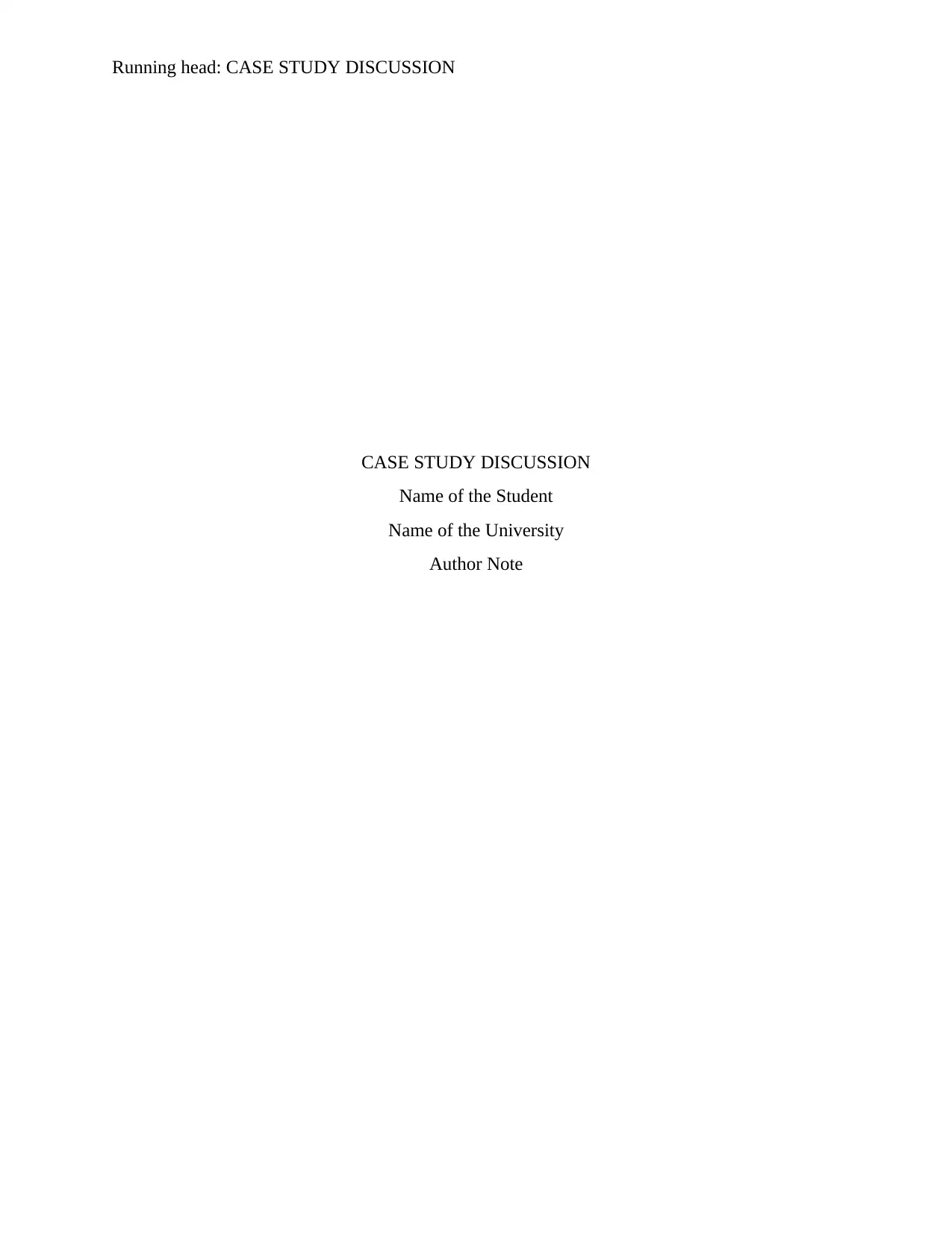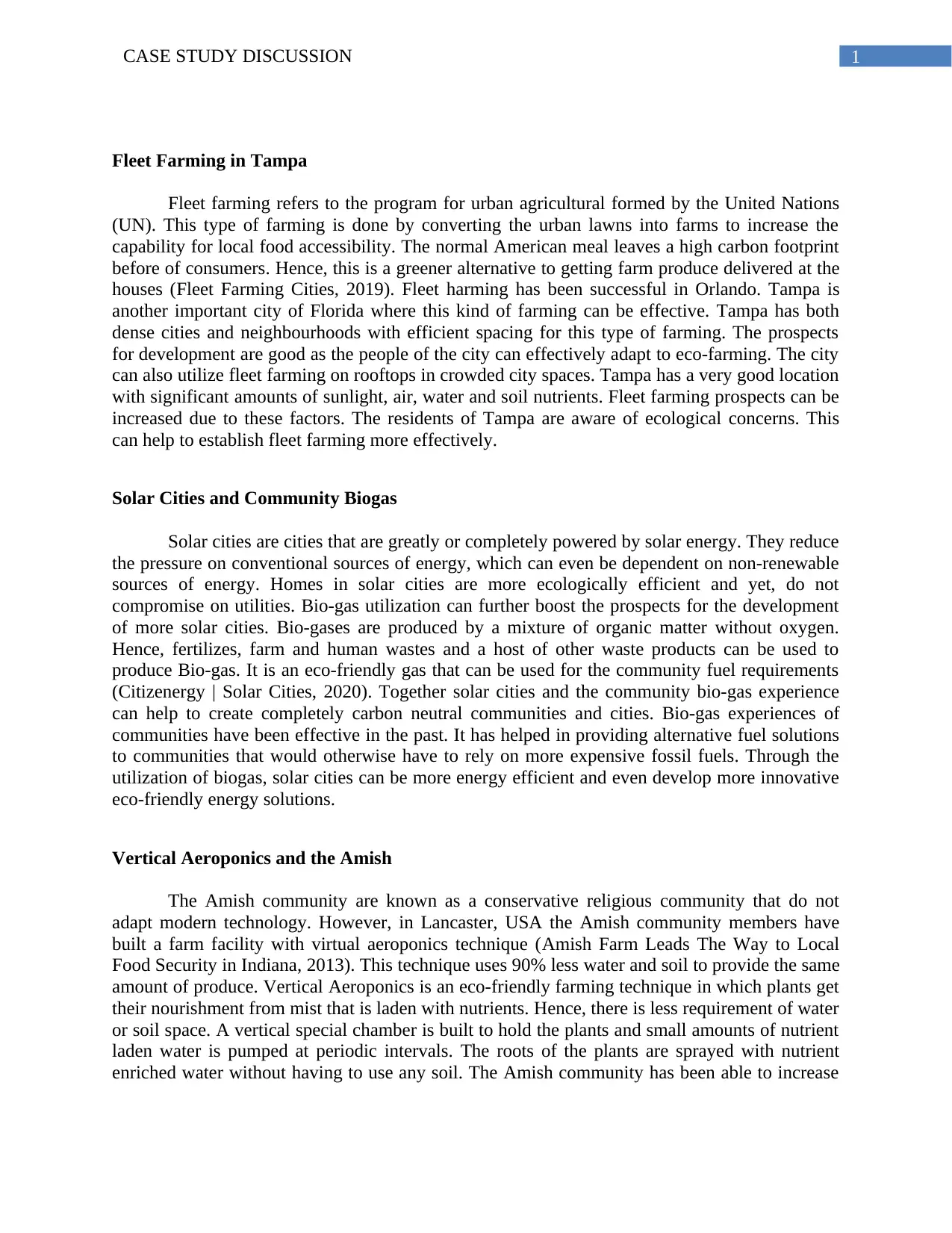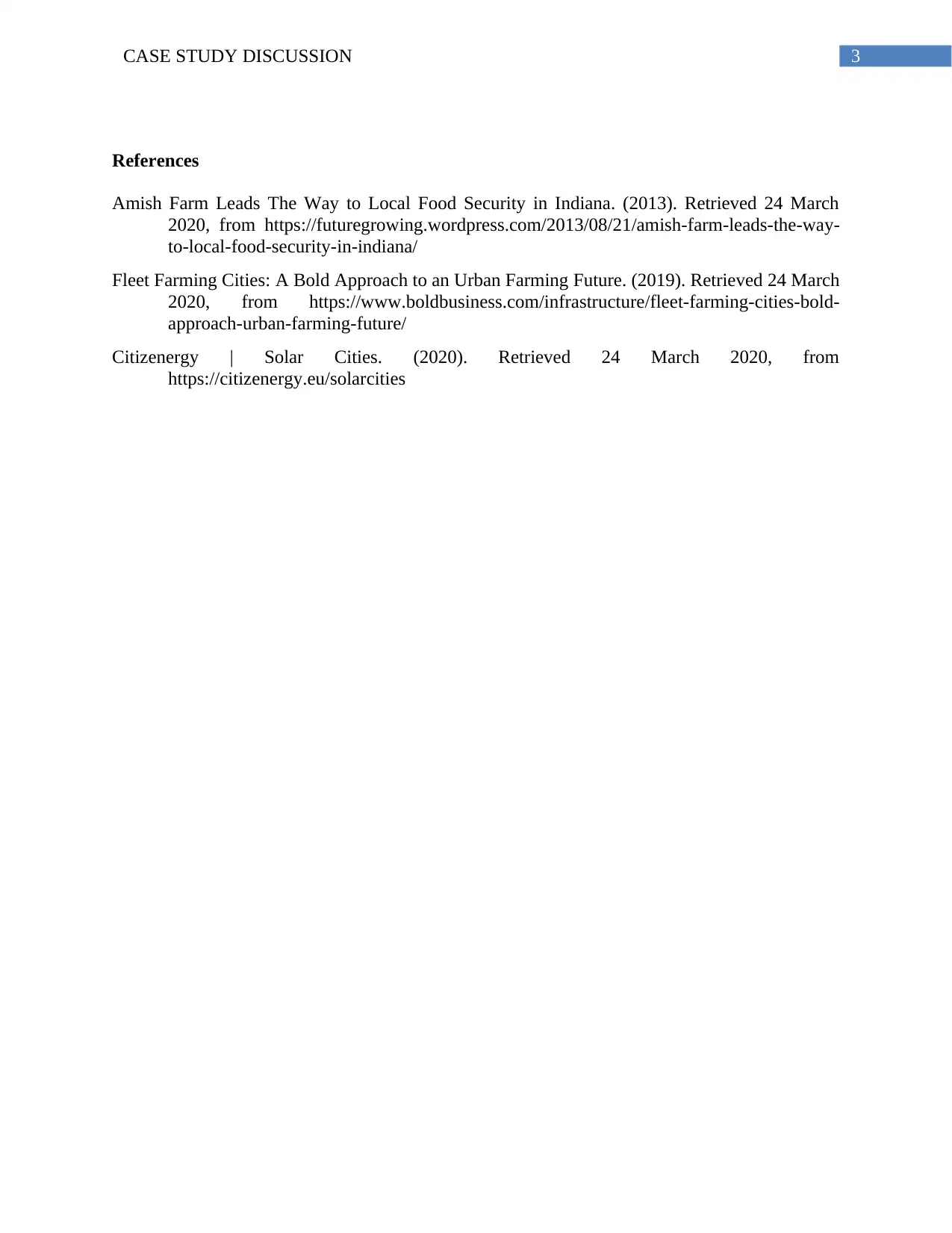Case Study Analysis: Fleet Farming, Solar Cities, Vertical Aeroponics
VerifiedAdded on 2022/08/28
|4
|687
|13
Case Study
AI Summary
This case study delves into three distinct yet interconnected examples of sustainable practices. The first, Fleet Farming, examines the conversion of urban lawns into farms to increase local food accessibility, particularly in Tampa, Florida. The second explores Solar Cities, which are powered by solar energy and can be enhanced by community biogas initiatives, creating carbon-neutral environments. Finally, the study investigates the Amish community's adoption of vertical aeroponics, a water-efficient farming technique. The assignment highlights the environmental benefits of these methods, including reduced carbon footprints, efficient resource use, and the potential for community-based sustainable solutions. It references specific examples and studies to support its claims, emphasizing the importance of adapting eco-friendly practices in various contexts.
1 out of 4






![[object Object]](/_next/static/media/star-bottom.7253800d.svg)